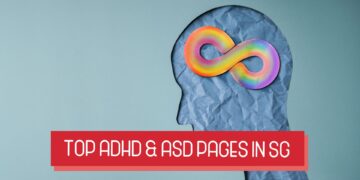Reading a self-help book gives you the belief that you can achieve more, do more, and experience more. This is how you become stronger and better. Dare yourself to go somewhere you haven’t been before, so you can experience something new. Become a better version of ourselves.
Here are some of the most popular self-improvement books that are currently hot sellers:
1. “Atomic Habits” by James Clear
In “Atomic Habits,” James Clear explores how small changes in our habits can make a big difference. In this book, Clear argues that small, consistent actions, called atomic habits, can compound over time to produce big results.
Using James Clear’s framework, you can stick to good habits, break bad habits, and create a culture that promotes them. There are four parts to the book: The Fundamentals, Make It Obvious, Make It Attractive, and Make It Easy. Each part offers actionable advice and strategies for transforming our daily routines and behaviors. The book’s strength is Clear’s emphasis on understanding why we form habits in the first place. Knowing the psychology of habit formation can help us design environments and routines that support positive change.
Ultimately, “Atomic Habits” is an engaging and well-researched book that offers practical advice for improving habits and achieving goals. It’s a bestseller and has received a lot of praise for its actionable advice.
2. “The 7 Habits of Highly Effective People” by Stephen Covey
Stephen Covey’s “The 7 Habits of Highly Effective People” has sold millions of copies since 1989. The book emphasizes character, ethics, and values in achieving success, emphasizing the importance of character, ethics, and values.
According to Covey, there are seven habits to develop:
- Be Proactive: Take responsibility for your actions and focus on what you can control.
- Begin with the End in Mind: Set clear goals and work towards them with a sense of purpose.
- Put First Things First: Prioritize your time and energy to focus on what is most important.
- Think Win-Win: Seek mutually beneficial solutions in all interactions with others.
- Seek First to Understand, Then to be Understood: Listen actively and empathetically to others before seeking to communicate your own point of view.
- Synergize: Work collaboratively with others to achieve shared goals and generate creative solutions.
- Sharpen the Saw: Continuously invest in your personal and professional development to maintain balance and sustain your effectiveness over the long term.
Success requires both personal and interpersonal effectiveness, according to Covey. In his book, he offers practical advice and strategies for making habits a part of everyday life and achieving a sense of balance and purpose.
This book has been widely praised for its timeless wisdom and practical advice. Having influenced the development of the modern self-help genre, it’s still popular and highly recommended for anyone looking to improve themselves professionally or personally.
3. “The Power of Now” by Eckhart Tolle
Eckhart Tolle’s “The Power of Now” emphasizes the importance of living in the present. Most people live in a constant state of mental chatter, thinking about the past or worrying about the future, and this prevents them from experiencing the joy and peace that come from being fully present at the moment.
Using his own spiritual experiences and teachings from various spiritual traditions, Tolle offers practical advice and techniques for quieting the mind and accessing the power of now. Our true essence exists beyond the mind, and we can access it by being fully present at the moment.
The book is divided into ten chapters, each exploring a different aspect of living in the present. Here are a few key themes:
- The importance of accepting and surrendering to the present moment, rather than resisting it or trying to escape it.
- The role of the ego in creating suffering and how to transcend the ego to access a deeper sense of identity and purpose.
- The power of mindfulness and awareness in quieting the mind and accessing a deeper level of consciousness.
- The connection between inner stillness and outer peace, and how being present at the moment can improve our relationships and our ability to live a meaningful life. The Power of Now is a thought-provoking and inspirational read that has become a modern spiritual classic. Practical advice and techniques for accessing the power of now and living a happier, more fulfilling life.
4. “Think and Grow Rich” by Napoleon Hill
The self-help book “Think and Grow Rich” by Napoleon Hill focuses on success and personal achievement. With its timeless advice on achieving financial success and personal fulfillment, the book has stayed popular since 1937.
According to the book, our thoughts and beliefs are our most powerful tools for success. Developing a positive mindset, developing a burning desire for success, and persevering through challenges is the key to achieving your goals and fulfilling your potential, according to Hill.
Based on interviews with successful entrepreneurs and business leaders, as well as Hill’s own experience, the book identifies key principles for success. The book covers a lot of ground such as:
- The importance of having a clear and specific goal or purpose, and developing a burning desire to achieve it.
- The power of belief and positive thinking in overcoming obstacles and achieving success.
- The importance of persistence and developing a “never give up” mindset in the face of adversity.
- The role of imagination and creativity in developing new ideas and solutions.
- The importance of taking action and developing a well-defined plan to achieve our goals.
Throughout the book, Hill provides practical advice and exercises for applying these principles in our own lives, from developing a positive mindset to building strong relationships and developing a success-oriented personality. ‘Think and Grow Rich’ has inspired millions of readers to pursue their dreams and achieve their goals. It’s a straightforward guide to developing a success mindset, and it’s become a foundational text in personal development and business.
5. “Man’s Search for Meaning” by Viktor E.
Frankl ‘Man’s Search for Meaning’ was published in 1946 by Austrian neurologist and psychiatrist Viktor E. Frankl. It’s a memoir about Frankl’s experiences in Nazi concentration camps during World War II, and his logotherapy method for finding meaning in life.
It’s divided into two parts. The first part of Frankl’s book describes his experiences in concentration camps, including Auschwitz, and the horrors he witnessed. Additionally, he looks at how people coped with such experiences psychologically and emotionally.
In the second part of the book, Frankl explains his concept of logotherapy, which is based on the idea that everyone has a fundamental need for meaning, and this can be fulfilled by finding a purpose in life. Humans are motivated by a need for meaning, which can be found in any situation, no matter how tough or challenging.
Additionally, Frankl emphasizes the importance of taking responsibility for one’s own life and finding meaning in suffering. By embracing suffering, individuals can find meaning in their lives and grow as individuals.
A powerful and inspiring book about the depths of human experience and the potential to find meaning and purpose no matter what. It’s a classic of modern literature and one of the most important books of the 20th century.
6. “How to Win Friends and Influence People” by Dale Carnegie
Dale Carnegie’s 1936 self-help classic “How to Win Friends and Influence People” still works. It’s full of practical advice and techniques for improving relationships, influencing others, and succeeding.
Four parts make up the book. Carnegie talks about building strong relationships with others in part one. Show genuine interest in other people, remember their names, and listen attentively to what they say.
Carnegie explores persuasion and influence in the second part. Among his strategies are giving sincere praise and appreciation, and avoiding criticism and condemnation
Thirdly, Carnegie talks about effective communication, emphasizing that one should be clear and concise, avoid arguments and confrontations, and look for agreement and cooperation.
Toward the end of the book, Carnegie discusses leadership and motivation. He emphasized setting clear goals, providing feedback and recognition, and creating a positive and supportive culture.
Ultimately, “How to Win Friends and Influence People” provides practical advice and techniques for improving interpersonal relationships and achieving success. The book has been praised for its practical insights and common-sense approach and remains one of the most influential self-help books ever.
7. “The 5 AM Club” by Robin Sharma
‘The 5 AM Club’ by Robin Sharma encourages readers to get up at 5 am every morning to focus on themselves. There’s a fictional story about a struggling artist and entrepreneur who meets an eccentric millionaire.
Readers and protagonists learn how to be more productive, fulfilled, and successful. Some of these principles are:
- The 20/20/20 formula: Spend the first 20 minutes of the day exercising, the second 20 minutes meditating or journaling, and the last 20 minutes learning something new.
- The twin cycles of elite performance: The first cycle is focused on renewal, which includes sleep, nutrition, exercise, and reflection. The second cycle is focused on growth, which includes learning, practicing, and pushing oneself beyond one’s comfort zone.
- The Four Interior Empires: The book suggests that every person has four interior empires, namely Mindset, Heartset, Healthset, and Soulset. To achieve personal mastery, one must work on all four of these empires.
- The 10 tactics for turning adversity into advantage: These tactics include embracing reality, taking responsibility, developing a growth mindset, being persistent, and finding meaning in difficult situations.
In summary, “The 5 AM Club” is a motivational and practical guide to achieving success and fulfillment. Readers are encouraged to take small steps toward their goals every day by starting the day with intention and purpose.
8. “The Miracle Morning” by Hal Elrod
Hal Elrod’s self-help book “The Miracle Morning” focuses on improving one’s life with a morning routine. It’s Elrod’s theory that how we start our days sets the tone for the rest of our lives, including our health, relationships, and finances.
“SAVERS” stands for Silence, Affirmations, Visualization, Exercise, Reading, and Scribing, according to Elrod. Let’s spend a few minutes on each of these every morning. Affirmations are positive statements about oneself, while silence includes meditation or prayer. Visualization is imagining your goals and desires as if they’ve already been achieved. It can be as simple as stretching or pushups. Scribing is writing down one’s thoughts or journaling, while reading is reading a book.
Further in the book, you’ll learn how to implement these practices in a practical way and how to deal with common obstacles.
The book aims to set you up for success and help you live your best life. Elrod’s book has become a self-help bestseller, with many readers reporting significant improvements in their lives after implementing the practices.
9. “Mindset: The New Psychology of Success” by Carol S. Dweck
Carol S. Dweck’s “Mindset: The New Psychology of Success” explores how mindset can affect our happiness and success. People can have two types of mindsets, a fixed mindset, and a growth mindset, according to Dweck.
Fixed mindsets think abilities and intelligence are fixed traits that can’t be improved. It often leads to fear of failure and a reluctance to take on new challenges, as well as a tendency to give up easily when things get tough.
A growth mindset, on the other hand, is when a person believes that their abilities and intelligence can be developed and improved. The right mindset leads to a desire to learn and a willingness to take on challenges, as well as resilience when things don’t go right.
Growth mindsets are essential for success in all areas of life, from academics and sports to business and relationships. Throughout her book, she provides examples of individuals and organizations that have achieved great success by adopting a growth mindset, along with practical advice on how to do it yourself.
To achieve success and fulfillment, Dweck emphasizes recognizing and changing one’s mindset. Also, she says mindset isn’t something you’re born with, but something you can develop and change.
In general, “Mindset: The New Psychology of Success” provides practical strategies for achieving success and happiness.
10. “The Lean Startup” by Eric Ries
It’s a book by Eric Ries that presents a new way of starting a business. With a focus on minimizing waste, maximizing learning, and iterating fast, this book shows you how to create and run startups more efficiently and effectively.
A “lean startup” is a company that runs on lean manufacturing principles but applies them to startup processes. Basically, lean startups should focus on creating a minimum viable product (MVP) that can be tested with real customers so they can get feedback. The feedback is then used to improve the product.
To be successful, startups have to learn quickly and adapt to market changes. The idea is to keep testing and refining your product with real customers, measuring the results, and iterating as needed.
Additionally, the book discusses various tools and techniques to help startups run more efficiently. Among them are agile development, customer development, and A/B testing.
This book says startups should focus on creating value for their customers, not just building products. Rather than just building products they think are cool or innovative, startups should focus on creating solutions to problems customers want to solve.
Overall, “The Lean Startup” is a great book that teaches you how to start and manage your own company. The book gives entrepreneurs the tools and strategies they need to start successful, sustainable businesses today.
There are a bunch of books out there that offer advice on topics like personal development, goal setting, productivity, and leadership. Readers, coaches, and self-improvement experts love them.
Remember, you’re your own Biggest project. Love yourself, improve yourself.



























